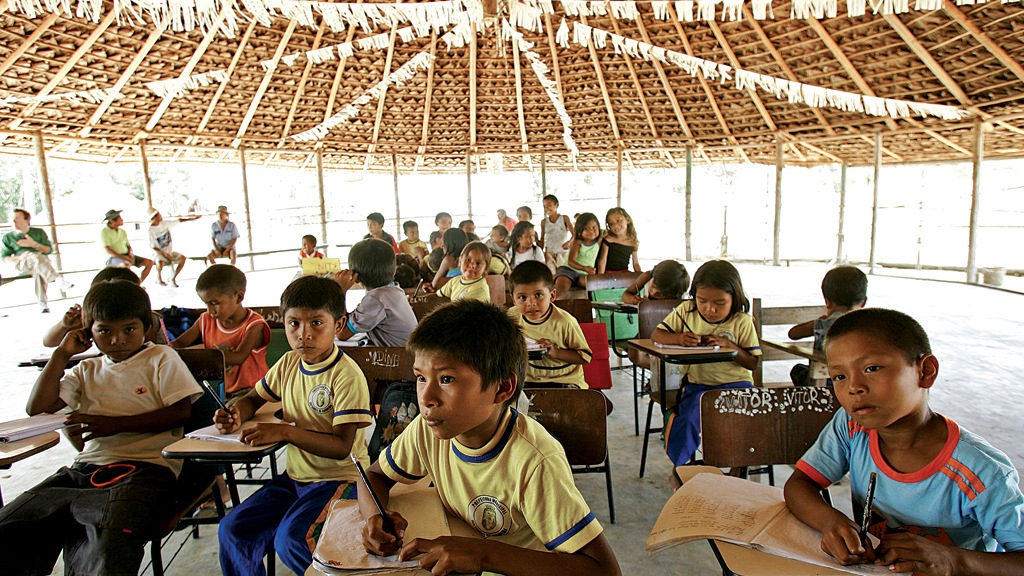RIO DE JANEIRO, BRAZIL – Education in military schools, run by members of the Armed Forces, has proven its worth. Today, however, Bolsonaro’s government tends to adopt the civilian-military model, employing public school teachers, but headed by military reservists. Along these lines, the Ministry of Education (MEC) is working on a project to establish this mixed system in indigenous schools in the northern region of Brazil.

The pioneering initiative was introduced to MEC by senator Chico Rodrigues and his chief advisor — one of the strongmen in the federal government — Leonardo Rodrigues de Jesus, known as “Léo Índio”, a nephew of president Jair Bolsonaro.
The concept of a militarized school in indigenous reserves aims to bolster the “study of all things Brazilian” through subjects that encourage hierarchy, the feeling of love for the country, and the defense of villages. The military would run part of the indigenous educational process.
According to the senator, the measure is significant as some indigenous communities are being enticed by non-governmental organizations (NGOs) and this, he said, has dampened the sense of “all things Brazilian” among these communities, particularly in the border region with Guyana and Venezuela, in the state of Roraima. “In these regions, we have several foreign organizations subliminally working to co-opt our indigenous people, and this is what we wish to prevent,” said the senator.
Concern at the border
The plan is to introduce this model in two communities, both of them in Roraima, the senator’s home state. One will be at the Moscou indigenous reservation, in the municipality of Bonfim, bordering Guyana; the other in the Contão reservation, in Pacaraima, on the border with Venezuela, a country that has been one of the Bolsonaro government’s primary concerns. These two municipalities would be the project’s initial subjects, which could later be introduced into other indigenous settlements in the northern region.
MEC’s Basic Education Plan provides, for instance, for 108 military schools (for indigenous or non-indigenous individuals) to be established by 2023. On the other hand, the expected investment in civilian-military schools is approximately R$40 million (US$10 million) per year. The question remains: will this civilian-military model work with Indians?

